
A promising post-graduate literature student is transformed into a psychotic killer following the suicide of his father and a sleazy affair by his mother with a younger man.

Mitsue Haraguchi
Numa vila nos subúrbios de Tóquio, um dos vizinhos compra uma televisão - artigo de luxo para a época - e todos os garotos do local matam suas horas de estudo para irem assistir ao campeonato de sumô. Dois deles, os irmãos Minoru e Isamu, se encantam tanto que insistem que os pais comprem-lhes um televisor. Com a recusa, eles entram numa greve de silêncio, oque lhes causa problemas com a família, os vizinhos, a escola e a polícia.

Okuni
Edmund Rostand's play Cyrano de Bergerac, transplanted to Japan. A poet-warrior with an oversized nose (matched only by his great heart) loves a lady. But she sees him only as a friend, so he helps another man to woo her by giving him the poetry of his own heart.
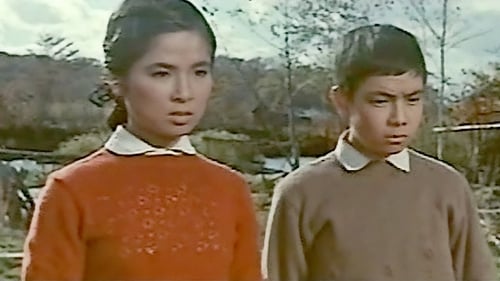
The story is about the social problems faced by Japan's indigenous Ainu, mostly centered on the reactions of the characters to their oppressed state.

7th film in the President series and the first entry in color.

Fifth entry in the Company President Series.
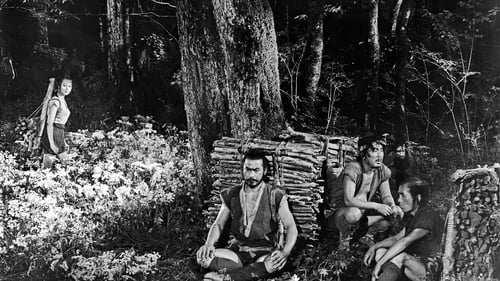
Old Lady-in-Waiting (uncredited)
Ambientado no século dezesseis no Japão, um solitário samurai escolta uma jovem princesa fugitiva através do território inimigo.

The common-law wife and daughter of a wealthy old man plot to murder him and steal his fortune, with the help of their male acquaintances.

Matsuno
Historical drama about a sleepy-eyed ronin.

May Kawaguchi is a famous Japanese fashion designer. Returning to Tokyo from her home in New York, she travels incognito with a tour group, in hopes of having a quiet vacation without being noticed. But she is spotted and the press has a field-day with the returning celebrity. Her hopes of rest shattered, she agrees to put on a large-scale fashion show.

The fourth entry in the Company President Series
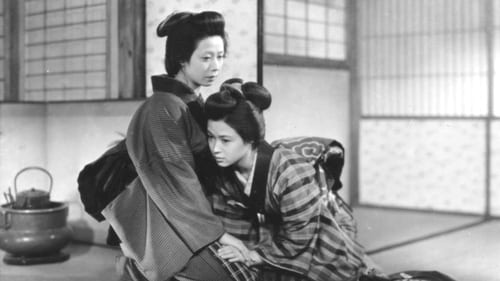
Set in the 1860s, the final years of the Tokugawa Shogunate, The Fireflies focuses on Tose (Awashima Chikage), the mistress of the Teradaya, a small inn in the Kyoto suburb of Fushimi. She does not have an easy life. Her husband, Isuke (Ban Junzaburo), is a wastrel who fancies himself a kabuki singer and who is obsessed with cleanliness. Her mother-in-law, Sada (Miyoshi Eiko) dislikes her because of her humble origins (her family are farmers) and because she fears that she will inherit the inn instead of Sugi, her daughter. Sada's hopes for Sugi, however, are dashed when she runs off with a con artist and leaves her child behind for Tose to take care of. When Sada becomes seriously ill, it is Tose who nurses her. On her deathbed, Sada asks her daughter-in-law's forgiveness. Meanwhile Isuke spends most of his time with a mistress he has taken, forcing Tose to manage the inn by herself


(uncredited)
The story follows a university student who moves into an apartment building and becomes involved with a waitress. The landlord then attempts to evict the tenants and sell the building through illicit means.
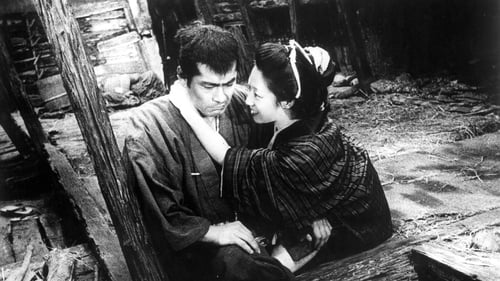
Asa, Tomekichi's Wife
Japão medieval. Em um cortiço degradado de Edo, um homem idoso (Rokubei) e sua amarga esposa (Osugi) alugam quartos e camas aos pobres e miseráveis. Os inquilinos são apostadores, prostitutas, pequenos ladrões e vagabundos bêbados, todos lutando para sobreviver. A chegada recente de Kahei, um homem idoso misterioso, afetuosamente chamado de vovô, dá pelo menos a esperança que há uma vida melhor lá fora, em algum lugar. (e 14 - Estimado 14 Anos)

A study of uneasy relationships among the inhabitants of a tiny rural community.

Period drama based on the novel by Saisei Murō.
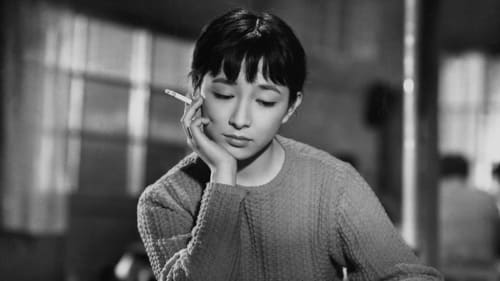
Two sisters find out the existence of their long-lost mother, but the younger cannot accept the fact that she was abandoned as a child.

Teacher
It's a man's world. Shimamura, an artist, comes to this snowbound town to rejuvenate himself. He connects with Komako, a geisha he met on a previous trip, and it seems like love. She's the foster daughter of a local family, almost engaged to the family's son Yukio, now dying of consumption. He's tended by his sister Yuko who's angry at Komako for abandoning her brother. Shimamura returns to Tokyo but promises he will be back soon. In anticipation of his return, Komako breaks with her patron and her family loses their home. Complications arise when Shimamura doesn't come back as promised. Then Komako discovers that he and Yuko knew each other in Tokyo. Can Komako escape destiny?

A neighborhood labors under postwar hardships.

The obstinate black market trader Okyo lives together with her son Seitaro, who works as a mechanic for a bus company. She also looks after her son's colleague, the bus driver Fujita. When he causes an accident one day, Seitaro testifies against him due to his moral scruples, thus getting his company into trouble.
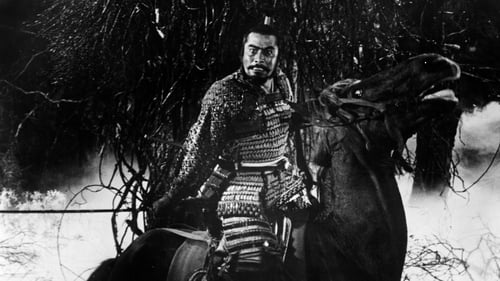
Old Woman at castle
Japão, século XVI. As guerras civis sacodem o país. Dois valentes samurais, os generais Washizu Taketori (Toshirō Mifune) e Miki (Minoru Chiaki), regressam aos seus domínios depois de uma batalha vitoriosa. No caminho, uma misteriosa senhora profetizao futuro de Washizu: o guerreiro se converterá no Senhor do Castelo do Norte. A partir deste fato Washizu, auxiliado por sua esposa Asaji Isuzu Yamada, se vê imerso numa trágica e sangrenta luta pelo poder.
Trono Manchado de Sangue (蜘蛛巣城, Kumonosu-jō?, literalmente "Castelo Teia de Aranha") é um filme japonês de 1957 dirigido por Akira Kurosawa, que transpôs a obra Macbeth de William Shakespeare para o Período Sengoku japonês (séc. XV - XVI).

Mrs. Shiokawa
Shozo is plagued by the needs of his ex-wife and his current one, but prefers the company of his cat.

Old maid

Japanese comedy film.

Kiyoko (Takamine Hideko) and her husband want to open a coffee shop. She becomes increasingly close to the bank clerk (Mifune Toshiro) she's asked for a loan.

The president learns that the company's biggest stockholder is also a friend of his singing teacher and spies on his movements.

A new third-class president wins an appointment thanks to his marriage with the former president's daughter.
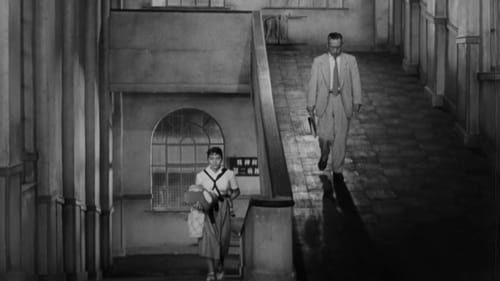
Toyo Nakajima
Kiichi Nakajima, um idoso proprietário de fundição, convencido de que o Japão será afetado por uma guerra nuclear iminente, resolve transferir sua família para a segurança no Brasil. Sua família decide que seja declarado incompetente e o Dr. Harada, um conselheiro do Tribunal Doméstico, tenta arbitrar. (e 12 - Estimado 12 Anos)
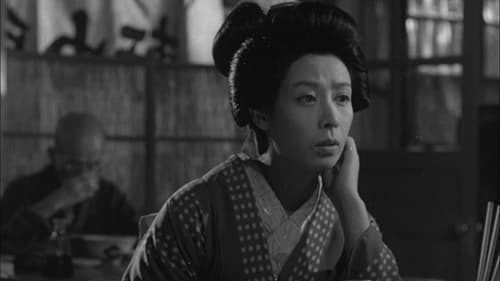
The story of a couple, a spoiled son and a down-to-earth girl, in Osaka in the early Showa era. The film won the prestigious Blue Ribbon awards for best director, best actor (Morishige) and best actress (Awashima), and the Mainichi Concours award for best actor and best screenplay (Yasumi Toshio). It ranked second (after Naruse Mikio’s Ukigumo) on the Kinema Junpō top ten films for the year.
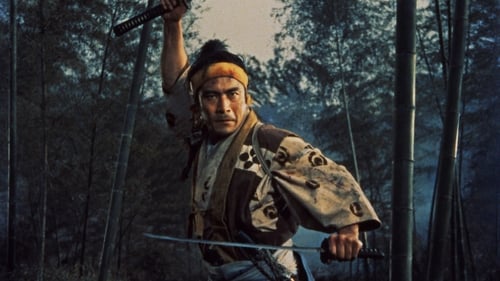
Osugi
Aqui a história se passa entre 1600 e 1612, no Período Edo. Segundo filme que retrata a vida do lendário samurai e estrategista Musashi Miyamoto, onde são retratados vários dos duelos históricos de um dos espadachins mais conhecidos do mundo. É dito que Musashi lutou em sessenta duelos e nunca foi derrotado.

Two youths - the serious son of a Buddhist abbot and his rakish pal - quarrel over a restaurant keeper's daughter. When one of the youths die the other boy and the girl find they cannot forget him.

Kiyo

Three young women make a suicide pact, but they grow to have a better understanding of themselves.
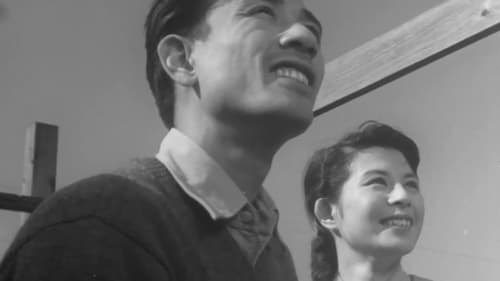
This drama of middle-class life in postwar Japan tells the story lower-middle-class workers in the city of Kawasaki, and their troubles and travails.
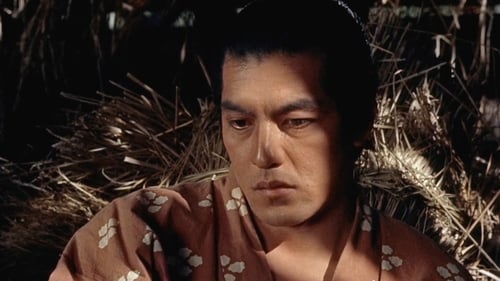
Osugi
Ao lado do amigo Matahachi, o jovem órfão Takezo deixa seu vilarejo para se juntar ao exército e enfrentar uma batalha. Vendo-se perdedores, os dois procuram abrigo numa casa isolada onde vive a viúva Oko e sua filha Akemi. Oko acaba seduzindo Matahachi, que cai na tentação da mulher e se esquece de seu noivado com Otsu. Logo Oko, Matahachi e Akemi partem para viver em outro local, enquanto Takezo resolve voltar ao seu vilarejo. Lá ele narra os acontecimentos à família de Matahachi, que além de não aceitar os fatos ainda condena o jovem Takezo por traição. Ele será salvo da morte por um monge que irá ensinar ao rapaz o código dos samurais. O destino acaba colocando Otsu e Takezo no mesmo caminho. Apaixonada, ela promete a ele que irá esperar seu retorno como um cavaleiro errante.
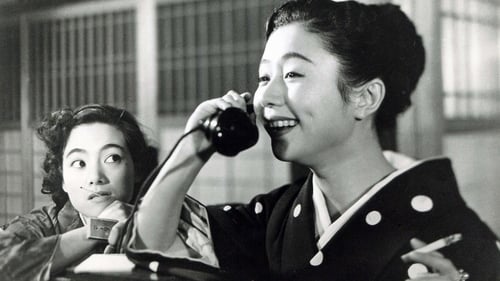
An Inn at Osaka, rarely seen outside Japan, follows the story of an insurance company executive from Tokyo, Mr. Mito, who is demoted to the Osaka office. He takes a room at a small inn and tries to rebuild his life. Notable for its exquisite framing and cinematography, An Inn at Osaka allows its complicated plotlines to disappear behind the minutiae of penury and humiliation that Mito and others suffer during the post-war economic and social reconstruction.

Mrs. Hatoko

Tomé

Nan
A family comprised of a man, woman and their only son is torn apart when the father, who is a doctor with his own clinic, is to go off to war. Soon the wife and the son are left without an update of his status and whether he is alive or not. With the clinic lying dormant the doctor's wife rents the premises to her husband's underling. This is a man who does not accept payment from the poor. The woman, in the meantime, works at a restaurant whose owner being ill has given her additional duties. Her younger sister is an unmarried finance writer who also lives with them. It is both sisters, however, who receive marriage proposals.

Mrs. Hagino
1953 Toho adaptation of Natsume's novel.

Otatsu

A math teacher loses his job while falling in love with a local girl.

Young Setsuko Fujino begins a new job at Tokyo Chemical Company. She likes her boss, Ippei Hitachi, and enjoys serving him tea, despite the fact that her fellow workers think the women employees should not have to act in such a servile manner. When the women go on strike over the issue, Setsuko finds herself caught in the middle. When the heir to the company, Ryosuke Tanabe, proposes marriage to Setsuko, she is honored, but realizes that her real affection is for Hitachi.

Shiro Yabe, a young gangster who boarded the second class on the Tokaido Line after finishing a dangerous smuggling transaction in Kobe, is next to a beautiful woman with a sad face.

Ranko
Gosho’s most celebrated film both in Japan and the West, Where Chimneys Are Seen is perhaps the most compelling example of his concern for, and insights into, the everyday lives of lower-middle-class people. Based on Rinzo Shiina’s novel of the absurd, the film depicts the lives of two couples against the backdrop of Tokyo’s growing industrialization during the 1950s.

A married couple looking for an apartment move in with the husband's co-worker, a widower. The husband becomes jealous of the widower and his wife.

The old wife

Jirocho the gambler hits the road.

Kumako Satake
Carmen falls in love with an artist in this sequel to Carmen Comes Home. The film is noted for being entirely shot with canted (Dutch) camera angles.

A screwball tale of a suspected “lady thief” and the detective who is on her trail, following her from Osaka to her home village, where she is going to hold a memorial service for her father. Of course, the detective falls in love with his prey.
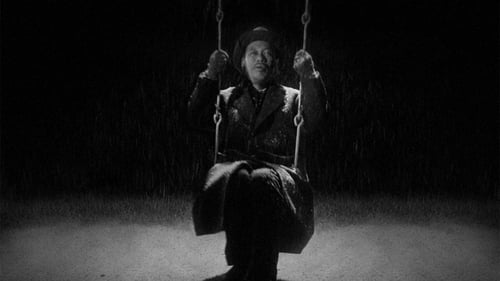
Housewife
Burocrata de longa data, que não liga para nada que não o interessa, descobre que está com câncer. Decide, então, construir um playground em seu bairro, tentando descobrir um sentido para sua vida.
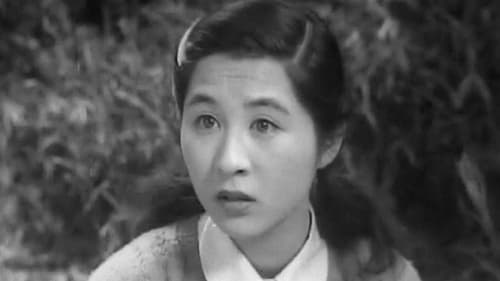
Grandmother
A teenaged girl witnesses her widowed mother's attempt to sustain her family.

1950s Japanese comedy.

Soldiers Hayate and Yaheiji secretly escape from their besieged castle. Hayate has left behind his lover, Kano. On his way, Hayate is wounded and cared for by O’Ryo, who falls in love with him. But when Hayate accidentally kills her caretaker, he flees, with O’Ryo in pursuit. Subsequently, Hayate's comrade Yaheiji falls in love with Oryo. Kano, the lover left behind by Hayate, believes him dead, and becomes involved with another soldier, Jurota. When Jurota defects to the opposing army, he takes Kano with him. A double set of love triangles has developed, wherein each man and each woman loves one and is loved by another. Finally only combat and self-sacrifice can untangle the weave.

Mother
A high-born woman named Okuni travels around the country with Gohei, a samurai retainer who is in service to her. They are in search of Tomonojo, who has killed the man who was Okuni’s husband and Gohei’s master, and they cannot return to their lord’s home until they have fulfilled their duty of hunting down and killing Tomonojo.

Old lady Onodera
When a group of young geologists declares a mountainside marked for residential development unstable, they are met with scorn on two fronts. On one end, they must contend with the local villagers who balk at the prospect of relocation; on the other, they face the ambitions of the headstrong lumber baron, whose actions will only further destabilize the land. Their pleas for reason ignored, the scientists can do little but observe as nature runs its inevitable course.
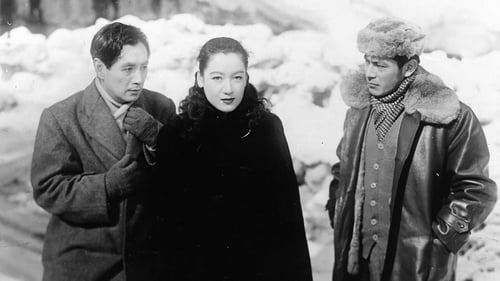
Madame Kayama
Kurosawa utiliza um texto de peso do mestre Dostoiévski. Conheça a história de Kameda, que viaja para Hokkaiko e acaba se envolvendo com duas mulheres. A tragédia acontece após uma perceber que não é amada e decidir tomar providências drásticas quanto a sua situação. (e 12 - Estimado 12 Anos)
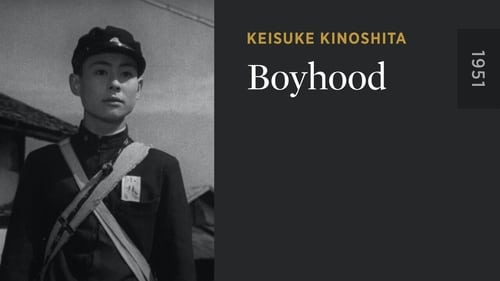
When a family has to relocate due to the war, they are ostracized by their new community.

Wataru Naohiko who has the prosecutor general as his father became a young composer and its symphony "saint" invoked the world echoed. But his disciple Uchiyama and his best friend prosecutor Daisuke Toki accused his music as a sesame of pause-only technique, not a truly heart-hungry art.
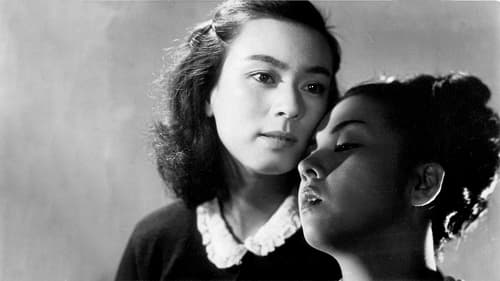
Clothes of Deception initiated Yoshimura’s most characteristic vein. This geisha story is often described as a loose remake of Mizoguchi’s pre-war masterpiece Sisters of Gion (1936), but this is inexact. Whereas in Mizoguchi’s study of two sisters, both women had been geisha, in Yoshimura’s film only Kimicho (Kyo Machiko) is, while her sister works in the Kyoto tourist office. Juxtaposing a traditional Kyoto profession with a modern one, Yoshimura shows how life in the old capital was changing in the wake of wider transformations in Japanese society.
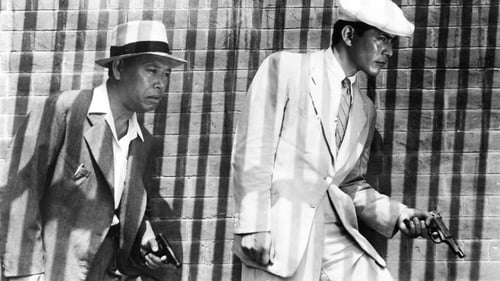
Harumi's mother
Murukami, um jovem investigador de homicídios, é roubado em um ônibus e perde sua pistola. Ele começa uma busca insana atrás de sua preciosa arma, sem sucesso, até receber a ajuda de um sábio e mais experiente detetive chamado Sato. Clássico noir do mestre Akira Kurosawa, que redefiniu o padrão de filmes policiais japoneses. (e 12 - Estimado 12 Anos)
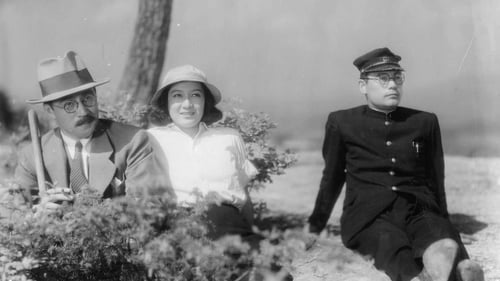
Madame Yagihara
Yukie, a filha bem-educada de um professor universitário, fica chocada quando o seu pai é dispensado do seu cargo pelos seus ensinamentos políticos e ainda mais quando o seu amante, um aluno do seu pai, é preso e executado como espião. Ela decide deixar Kyoto para viver com os pais do rapaz na aldeia camponesa. Mas a vida ainda tem muitas lições para ela... (e 12 - Estimado 12 Anos)

Otane
Uta’s mother died when she was six years old; her father she never met. She was forced to adopt a traveller’s life when her grandmother died, and now she is a dancer and part of a family of actors who travel from town to town, setting up street performances. A way of escape from this marginal existence arises when she gets the chance to move to tea merchant Hiramatsu’s place, where she is asked to teach his daughter to dance.









































